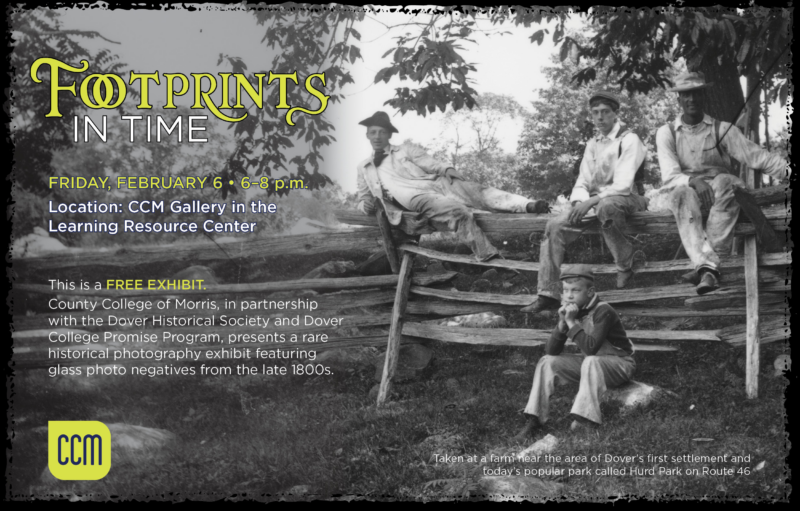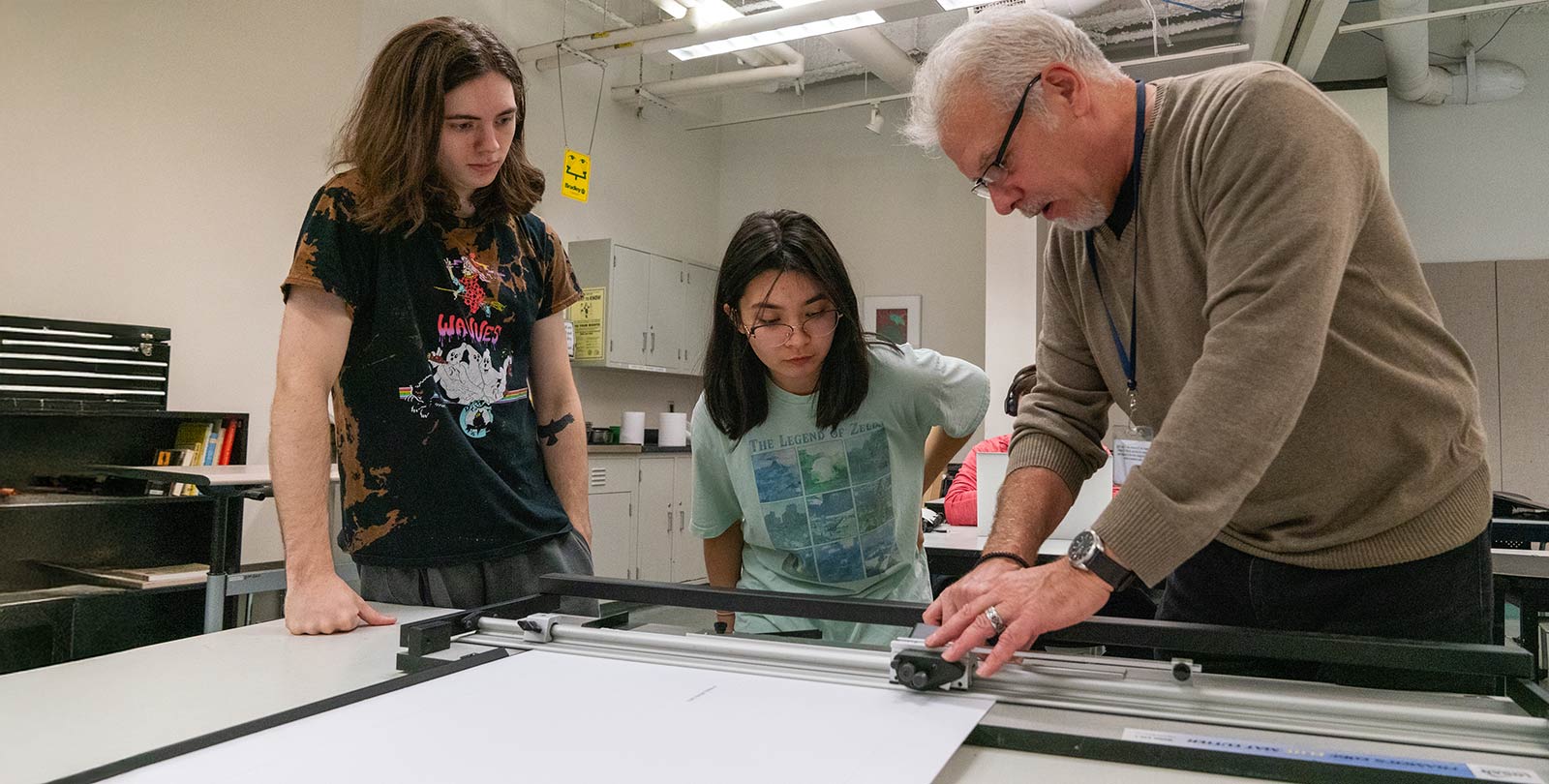What You Will Learn
The Fashion Merchandising track offers a diverse and interdisciplinary studio environment whereby students gain insight to multiple areas of design and their influences within industry, society and profession. Architecture, Interior Design, Industrial Design, Fashion Design, Fashion Merchandising are areas that make up the studio culture in the Design Program at CCM.
The Fashion Merchandising track provides a comprehensive foundation for students transferring to four-year colleges and universities to continue their studies and pursue a Bachelor of Science (B.S.), Bachelor of Business Administration (BBA) or a Bachelor of Arts (B.A.) in Fashion Merchandising. Contemporary and traditional skill sets acquired at CCM provide the student with immediate opportunities in industry as Visual Merchandising Assistants or Interns, Window Display Coordinators, Fashion/Trade Show Assistants, and Sales and Management positions in Retail.
Curriculum
The Fashion Merchandising program at CCM includes a combination of a 27-credit design core and a 13-credit fashion merchandising core.
Fashion core courses feature an introduction to fashion merchandising, principals of marketing, intro to sewing and textiles and an independent study.
Design courses consist of the history of design, drawing, color theory, 2D for designers, design rendering, drawing for designers, design concepts and a final portfolio preparation course enabling you to finalize your design portfolio for future education or professional job applications.
Careers
A degree in Fashion Merchandising will prepare you for the following careers:
Associate Degree:
- Fashion Merchandising Intern
- Fashion Sales
- Retail Manager
- Trade Show Assistant
- Visual Merchandising Assistant
Bachelor’s & More:
- Fashion Buyer
- Production Development Manager
- Fashion Editor
- Catalog Production Manager
- Market Research
Where You Can Go
Upon completion of the Associate in Fine Arts (AFA), the majority of Fashion Merchandising track students at CCM transfer to earn a bachelor’s degree: Bachelor of Science (B.S.), Bachelor of Business Administration (BBA) or a Bachelor of Arts (B.A.). CCM graduates have transferred to the following institutions based on their CCM grade point average and portfolio:
- Fashion Institute of Technology (FIT)
- LIM College (Laboratory Institute of Merchandising)
- Montclair University
- Marist College
Students uncertain about their career goals or preference of Design discipline are offered opportunity for exploration within this program.
Visit our Transfer Services page for more information.
Credit, non-credit internship experiences and job search support are facilitated through our Office of Career and Transfer Services, where you can also learn how to build a resume, and receive the tools to help you with interviewing skills to succeed! Visit our Career Services page for additional information.
Why Study Fashion Merchandising at CCM?
CCM has designated studio classrooms with state-of-the-art equipment and software available to all design students.
- The class size average is 12:1 in the studio; this ratio fosters a mentoring relationship between the student and professor.
- Studios are supplied with materials and resources that allow extensive opportunities for creative exploration in research and process.
- Faculty are dedicated and highly accomplished. Many maintain professional practice, bringing real-world problems to the design curriculum and classroom.
The program is accredited by the Middle States Association of Colleges and Schools.
Paying for Your Fashion Merchandising Education
Earning an associate degree in design is a powerful investment that will pay off over the course of your life, in both increased earnings and job satisfaction. But what is the upfront cost, and how do you afford it?
There’s good news: Money is available to help you pay for school! Our Financial Aid staff can provide lots of information about the process of finding funds to help pay for your education.
Featured Courses
Introduction to Fashion and Visual Merchandising
This class explores the interrelationship between the consumer and the various sectors of the fashion industry. Students learn the principles and techniques that fashion merchandisers use in making key decisions on buying and product sourcing, store planning and layout. Students review actual case studies and take on projects that engage the merchandising planning and decision-making process.
Fashion Construction Technology
This course takes a hands-on approach to the design, construction and presentation of fashion apparel, custom made clothing and costuming for stage and screen. Construction techniques, fabrics, tools and equipment are explored in detail in the classroom and the community. Draping as a means of design and basic pattern drafting are explored. Students develop the skills necessary to construct and present projects of their own design to a panel of peers and professionals.
2D for Designers
Learn to use elements and principles to achieve a synthesis of form, space, composition, and content in this lecture and studio lab course. Emphasis is given on communicating ideas for realization as architectural and interior spaces, consumer products, packaging, and fashion design. The course is designed to address the range of formal issues, processes, and material practices students will encounter as they move into the more specialized areas of design.




